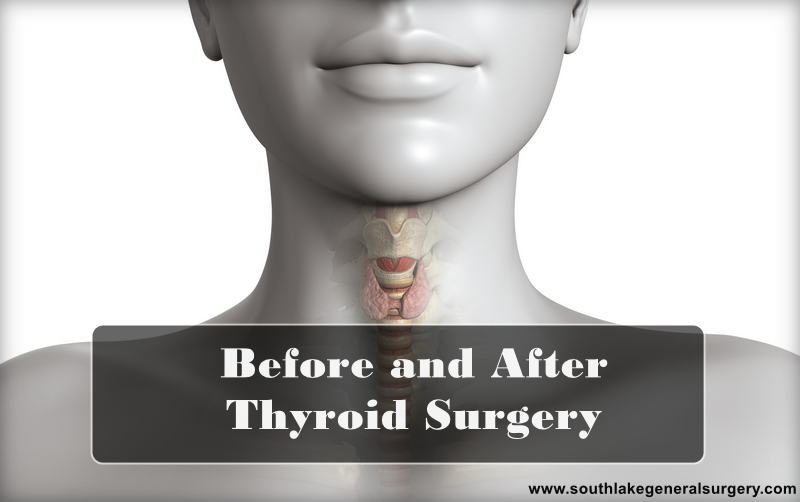Before and after thyroid surgery, patients are often faced with a variety of emotions and questions. Anxiety about the surgery itself and concerns surrounding the recovery process can be overwhelming, while the potential lifestyle changes that come with a thyroidectomy can cause trepidation in some individuals.
It is essential for patients to educate themselves about the surgery, understand the recovery timeline, and follow the physician’s advice for post-surgery care to maximize their chances of a successful outcome. By doing so, patients will be better equipped to navigate the challenges associated with before and after thyroid surgery and take steps towards a healthier, more fulfilling life.
In case you’re planning thyroid surgery, it’s important to know how to prepare yourself for the procedure and what to do while you recover. This incorporates any tests you’ll require before Thyroid surgery, is just like what to stay away from post-surgery to help ensure its success.
What should I do to prepare for thyroid surgery?
Post your thyroidectomy or thyroid lobectomy is planned, you’ll get a pre-operative assessment with individuals from your thyroid surgery care team or your surgeon. That assessment may incorporate blood tests, an electrocardiogram (EKG), X-Rays, or other imaging reports.
We’ll give you explicit guidelines on when to stop eating, drinking, and taking drugs before a medical procedure. Significantly, you follow these instructions for your well-being, and you’ll have to have an empty stomach before any surgery that requires anesthesia. If the instructions aren’t followed to the guidelines, your thyroid medical procedure may be postponed. If you’ve any specific queries, please contact us at: https://www.southlakegeneralsurgery.com/make-an-appointment/
How is recovery after thyroid surgery?
Post your thyroidectomy or thyroid lobectomy, you may feel a transitory sore throat, neck pain, trouble swallowing, or a frail voice.
Your eating routine will be limited for the night of your surgery, however, in many cases, patients can return to their daily routine the following day.
While you leave the hospital, we’ll be scheduled a follow-up appointment, explained the guidelines for your at-home recovery, and go over any medical prescriptions.
Many people are prepared to discharge from the hospital within one day of surgery, yet takes off around fourteen days from work to recover. You’ll have to avoid hard work or various tasks that can strain your neck for as long as three weeks after your surgery. Soaking or scouring the area of the incision is likewise prohibited for at least one week to speed up the healing and recovery process. Showering is commonly permitted after around one day.
Pain at the incision area will improve in a couple of days however may continue for a week or more. If you notice unexpected swelling in your neck, which could indicate an infection, contact our office at +1 (817) 748-0200.
Because of the aggravation of the parathyroid glands, which manage calcium balance, your calcium level may drop after surgery. If the level of calcium drops, you feel numbness and tingling in your fingers or around your mouth. We’ll screen your calcium levels through blood tests, and prescribe instructions about taking calcium substitutions if necessary.
Complications after thyroid surgery
After a complete thyroidectomy, you will be prescribed lifelong thyroid hormone substitutions. Since your whole thyroid gland is taken out, it will no longer contribute to the hormone you have to control your body’s metabolic cycles. You may likewise need to take supplements post-thyroidectomy to adjust your calcium levels.
Post a thyroid lobectomy, you’ll have to have your thyroid hormone levels checked and will be recommended a thyroid hormone substitution, if necessary.
Post your thyroid surgery, you may feel pain in your neck, soreness of vocal cords, or a dull voice for some time. These symptoms are normally transitory.
What diet plan should I follow after thyroid surgery?
For the vast majority, a specific diet plan post-thyroidectomy or thyroid lobectomy isn’t essential. You’ll probably be able to eat and drink normally after 24hrs of your surgery, yet it is recommended to take a liquid diet first. Our surgeon will inform you as to whether and for how long you have to confine your eating and drinking.
Prognosis
Thyroid surgery, a common procedure in the medical field, often results in significant improvements in patient health and quality of life. As with any surgical intervention, a prognosis before and after the procedure is vital for both the patient and the medical team.
By carefully evaluating factors such as the type of thyroid disorder, medical history, and overall health status, physicians can provide a personalized prognosis for each patient. Moreover, post-surgical monitoring and timely interventions can aid in the swift recovery and enhanced well-being of individuals undergoing thyroid surgery.
Appointment
For more information on Thyroid Surgery, please contact our healthcare expert today at: +1 (817) 748- 0200

